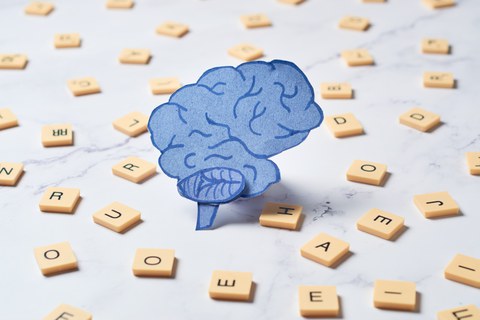Sep 22, 2023
TUD study on dyslexia searches healthy control participants
Arte documentary "Legasthenie - Wir dachten immer, du bist dumm" features dyslexia research of TUD
Nearly one in ten people worldwide are affected by developmental dyslexia. Therefore, dyslexia is the most common specific learning difficulty. Individuals with dyslexia have difficulty reading and writing fluently and accurately. Dyslexia is independent of intelligence and can also not be explained by inadequate schooling, or a general visual or hearing impairment. Affected individuals are at an increased risk for school anxiety and are likely to be hindered in their academic and professional careers. But despite its prevalence, the causes of dyslexia are still largely unknown.
ARTE documentary features TUD’s dyslexia research
In a recent documentary to be broadcast this week on ARTE, documentary filmmaker Daniela Schmidt-Langels sheds light on the topic of dyslexia with the involvement of various research institutes, including the work of Katharina von Kriegstein and her team at the Chair of Cognitive and Clinical Neuroscience at TUD. The documentary "Legasthenie - Wir dachten immer, du bist dumm" offers a great insight into a common learning difficulty, discussing the research on the subject as well as the lived experience of those affected by it.
It is believed that dyslexia is related to difficulties with processing speech sounds, which leads to problems with processing written language. In the brain, this is associated with changes in structure and function, particularly in the left hemisphere reading and language networks. However recently it has also been found that the auditory pathways that bring information from the ear to the brain might play a role in dyslexia.
Dyslexia study at TUD
In a current study, the team at the Chair of Cognitive and Clinical Neuroscience at TUD - Dresden University of Technology led by Prof. Katharina von Kriegstein, aims to further investigate the mechanisms of dyslexia in the brain. The international team of scientists will use magnetic resonance imaging to observe how structures in the auditory pathway in people with dyslexia react to sounds and whether these reactions differ from those who do not have reading difficulties. Many dyslexics have already participated, now the team is looking for non-dyslexic control participants with the following characteristics: Age between 18 and 40 years, right-handed, German native speakers and no previous neurological or psychiatric diseases. The study lasts a total of about ten hours, which can be divided into several sessions. The participants will receive an expense allowance.
The results of the study will help to better understand the symptoms and mechanisms of dyslexia in the brain. This is a prerequisite for implementing better therapy and support measures for people who struggle with reading and often have fewer opportunities for qualified jobs. The study is funded by the ERC Consolidator Grant SENSOCOM. More information and conditions of participation at: https://tu-dresden.de/mn/psychologie/ifap/kknw/forschung/LRS
Airing dates documentary on ARTE:
Saturday, 23 September 23 at 10:55 pm
Sunday, 8 October 23 at 07:55 am
Monday, 10 October 23 at 09:00 am
https://www.arte.tv/de/videos/106664-000-A/legasthenie-wir-dachten-immer-du-bist-dumm/
Media inquiries:
Heidi Järvikylä
Chair of Cognitive and Clinical Neuroscience
TUD – Dresden University of Technology
+49 351 463-43895
Prof. Katharina von Kriegstein
Chair of Cognitive and Clinical Neuroscience
TUD – Dresden University of Technology

